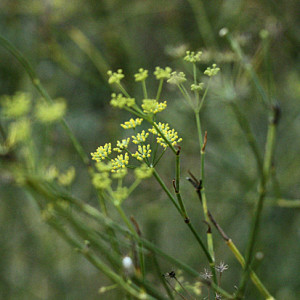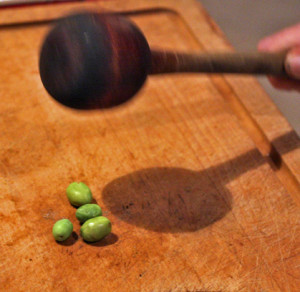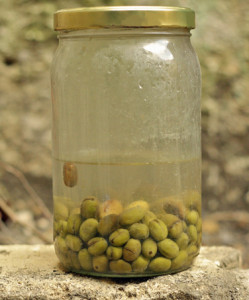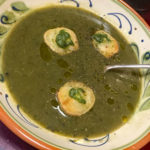
I love olives, which is just as well, as there’s a lot of them about in Provence. There are olive groves everywhere you look and most people living in the countryside have olive trees in their gardens. My favourite olives are called picholines, they are slightly elongated and are picked when they are young and still green and have a fruity taste. They are traditionally preserved with brine and herbs and are usually eaten with an apero, aperitif, or used in local Provençal dishes. They are also used to make oil, but don’t give a very high yield compared to other varieties.
As we live in a town, we don’t have any olive trees, but the other week we went to visit our friends Papou and Fabrice who live in an old mas (farm house) in Paradou and had invited us to help them with their olive vendage, harvest.

They don’t have many olive trees, maybe 4 in total and as this year wasn’t a great year for their olives, they didn’t have enough to take to the co-operative press to be made into oil and Papou suggested I take home what we picked to make olives cassées.

Olives cassées literally means broken olives and involves hitting them with a wooden mallet so that the herbs can infuse the fruit with their flavours. Papou gave me this lovely much used recipe book of hers which is the bible on Provence cooking called La Cuisine Provençal, written by J.B. Reboul in 1910. It has been reprinted and updated many times, but remains essentially the same. She showed me the recipe for Olive Écachées, which I presume is another word for crushed (I couldn’t find a translation in the dictionary, so it may be a Provençal word) and which I decided to follow.

The herbs that are used can be found wild in the surrounding hills of the Alpilles and the Montagnette and include fennel, thyme, and bay leaves.

The olives used should be green and free of worms (unfortunately as my friends don’t treat their olive trees, most of those collected were wormy, making this an even smaller harvest) they are then bashed and left to soak in water for up to 15 days to rid them of their bitterness.

The water has to be changed every 24 hours, not much of a chore with my one little jar, but you can imagine the work involved if you had barrels of olives to cure.

You then cook what is called a saumure, a brine flavoured with fennel heads and stalks, thyme, bay leaves, some pepper corns and some corriander seeds, some dried orange peel (I didn’t have any) using a ratio of 1 kilo of salt to 10 kilos of water (I used 50gm of salt to 500ml of water).

You let this cool and then add it to the olives after they have had their final rinse. Close the lid and leave for at least 5 to 6 days before eating.

I thought this would make a good gift to bring along to Vanessa Kimbell’s Blogger Gift Swap taking place at Fortnum and Masons on 18th November. As I’m in Provence and not in London, I won’t be attending in person, but if I were, this is what I would bring. It reminds me of when we lived near Ludlow in Shropshire and every year we would have a self-employed Christmas lunch as none of us had company Christmas lunches to go to, it was always a very ‘noisy’ affair, as The Artist would say, even for Shropshire standards!
I love that Vanessa is encouraging people to make Christmas gifts. I have been making food presents for years now (to which all those lucky producers and directors I have worked with over the years can attest) and I love the fact that more people are now doing the same.
I seem, without noticing it to be slowly amassing would could become a Christmas hamper for someone. Funny that, bah humbug and all!
What would you make or like to receive in a Christmas hamper, answers on a post card can be left in the comment box below.


















Now we know how to make this classic Provencale treat, thanks to you (and Papou!). And a blogger gift swap sounds like a fun idea!
And did you learn anything new about the olive?
What a great post – I can see myself making this in the future, the steps
were very helpful. Love olives too…not so much before moving to Provence,
but now I can’t get enough of them!
WOW, they look fantastic i want to eat them. I wonder what the olives are like in Marseille and if i can find some just hanging around 😀
Thanks so much for sharing the recipe. I love Picholines and am looking forward to trying my hand at it.
I would love Harold McGee’s book on food technology or Michael Ruhlman’s new book. A big hefty read to curl up with around a fire! Great post. And what fun to look at olives while the leaves are falling off the maples and London planes here in NYC.
smoked eel – can never have enough! But your olives sound the perfect gift.
Off to Shropshire this weekend for the grand opening of Calvert Castle!
Smoked eel my favourite too! How come I never knew that about you? Eaten with vodka shots to cut the oil is the best way to eat it!
Your olives look amazing! I adore olives.